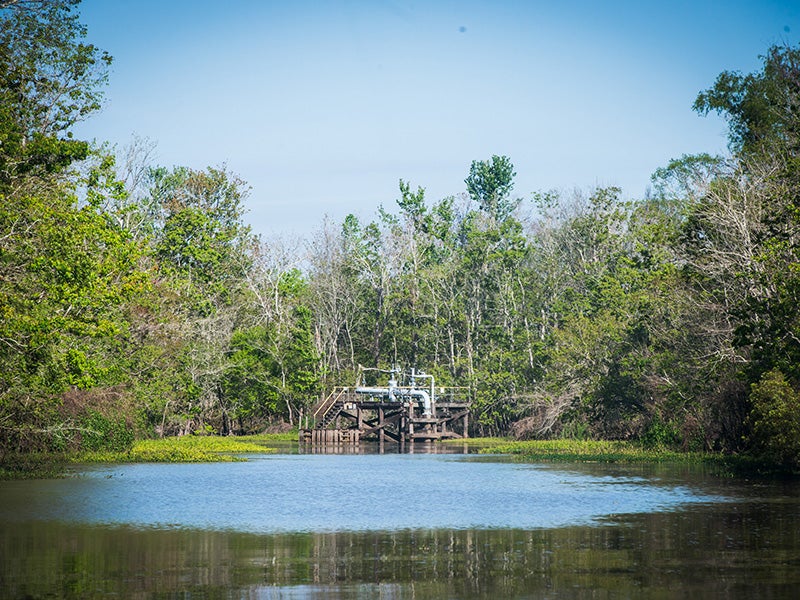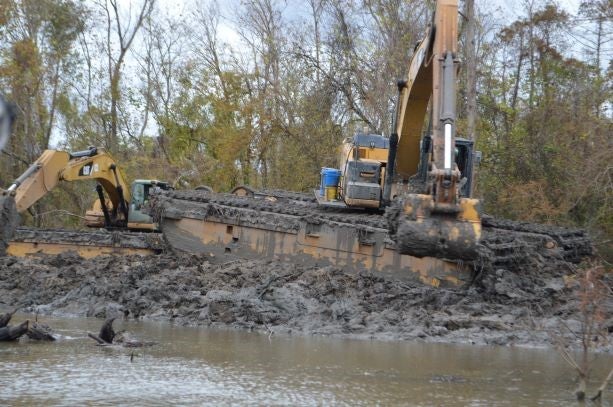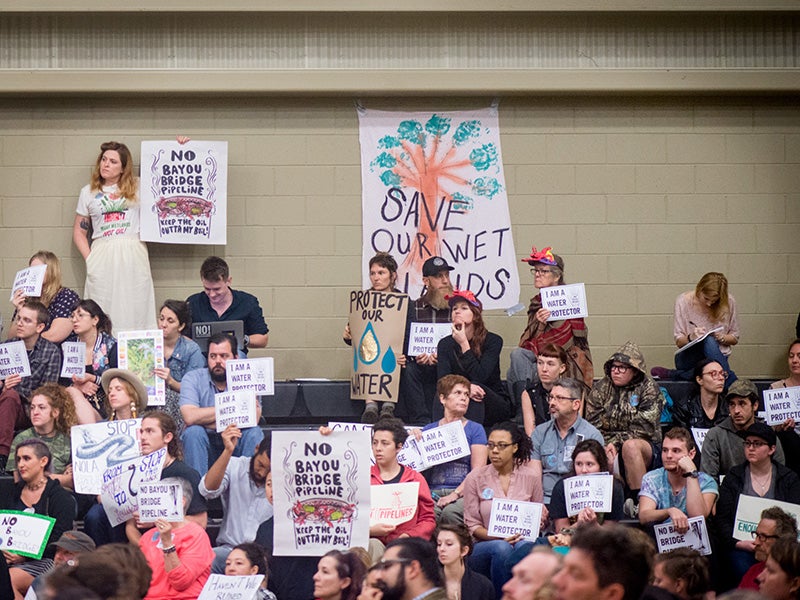Protecting the Atchafalaya Basin from the Bayou Bridge Pipeline
The Atchafalaya Basin is one of the nation’s ecological crown jewels. Its bottomland hardwoods, cypress swamps, bayous and backwater lakes are some of the country’s most productive wildlife habitats—home to 45 species of mammals, 250 species of birds and 40 species of reptiles—and a vital part of the region’s economy.
Case Overview
The Bayou Bridge pipeline project proposes to connect the controversial Dakota Access pipeline, which transports volatile and explosive Bakken crude oil from North Dakota, to refineries in St. James Parish and export terminals, forming the southern leg of the Bakken Pipeline. Energy Transfer Partners owns both the Dakota Access Pipeline and the proposed Bayou Bridge Pipeline.
The Atchafalaya Basin is one of the nation’s ecological crown jewels. Its bottomland hardwoods, cypress swamps, bayous and backwater lakes are some of the country’s most productive wildlife habitats—home to 45 species of mammals, 250 species of birds and 40 species of reptiles—and a vital part of the region’s economy, with tourism and travel expenditures that exceed $400 million annually.
The proposed pipeline threatens to further degrade forested swamps in the Atchafalaya Basin, and destroy wild crawfish habitat by making permanent illegal spoil banks that are already destroying swamps along the Bayou Bridge pipeline right-of-way. Before any more pipelines are built in the Basin, the U.S. Army Corps of Engineers needs to enforce existing permits and bring illegal rights-of-way back into compliance.
The overall health of the basin would be threatened by potential leaks and spills—a routine occurrence for old and new pipelines. One study revealed an average of 20 major spills occur in Louisiana each year. In addition, federal data shows that Energy Transfer Partners and its subsidiary Sunoco Inc. were responsible for 329 “significant” pipeline incidents across the country in the last decade.
Despite repeated requests for adequate environmental review, the Corps issued permits and authorizations for the Bayou Bridge pipeline on December 14, 2017 without requiring an Environmental Impact Statement—a violation of the Clean Water Act and National Environmental Policy Act, according to a legal complaint filed by Atchafalaya Basinkeeper, the Louisiana Crawfish Producers Association (West), Gulf Restoration Network, Waterkeeper Alliance, Sierra Club and their lawyers at Earthjustice.
The lawsuit claims that the 162-mile pipeline would pose a serious threat, with risks of oil spills into wetlands, rivers and lakes; as well as the potential for permanent destruction of invaluable cypress and tupelo river swamps.

Case Updates
Case page created on January 11, 2018.

